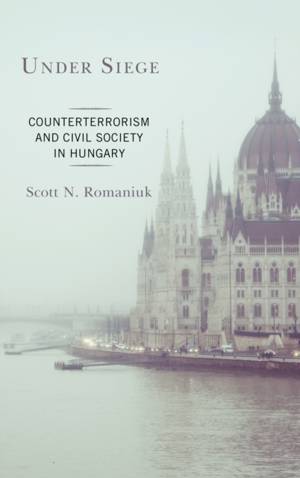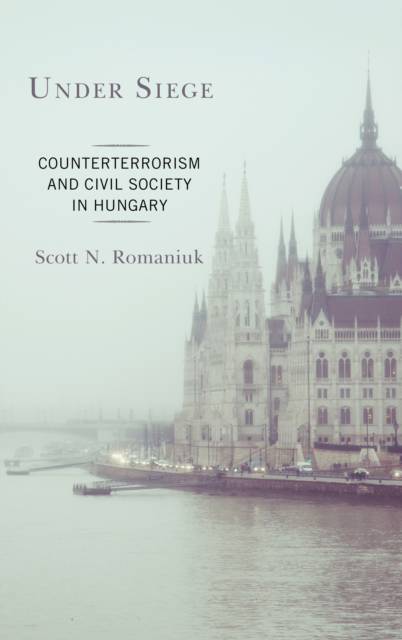
- Afhalen na 1 uur in een winkel met voorraad
- Gratis thuislevering in België
- Ruim aanbod met 7 miljoen producten
- Afhalen na 1 uur in een winkel met voorraad
- Gratis thuislevering in België
- Ruim aanbod met 7 miljoen producten
Omschrijving
Under Siege: Counter-Terrorism and Civil Society in Hungary critically examines the effects of Hungary's counterterrorism and security policies on civil society organizations since the Fidesz party's sweeping victory in 2010. It explores the historical and political depths of the government's security apparatus, including the formation and implementation of its counter-terrorism laws, polices, and institutions, as well as the terrorism landscape. The author draws upon survey research conducted across four categories of civil society organizations, including peacebuilding, development, human rights advocacy, and humanitarianism, and extensive data collected through semi-structured interviews with members of the civil society community, security actors, legal experts, politicians, and scholars. This book argues that the Hungarian government's counterterrorism and security regime has significantly altered the autonomous space in which civil society organizations operate and severely strained state-society relations.
Specificaties
Betrokkenen
- Auteur(s):
- Uitgeverij:
Inhoud
- Aantal bladzijden:
- 362
- Taal:
- Engels
Eigenschappen
- Productcode (EAN):
- 9781498599559
- Verschijningsdatum:
- 7/02/2022
- Uitvoering:
- Hardcover
- Formaat:
- Genaaid
- Afmetingen:
- 152 mm x 229 mm
- Gewicht:
- 698 g

Alleen bij Standaard Boekhandel
Beoordelingen
We publiceren alleen reviews die voldoen aan de voorwaarden voor reviews. Bekijk onze voorwaarden voor reviews.












